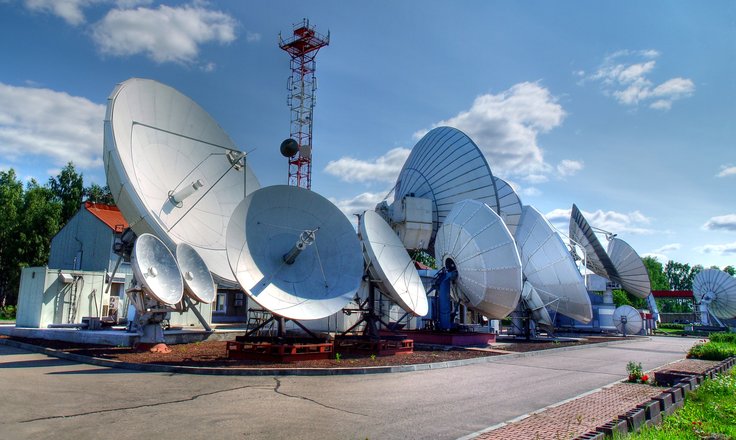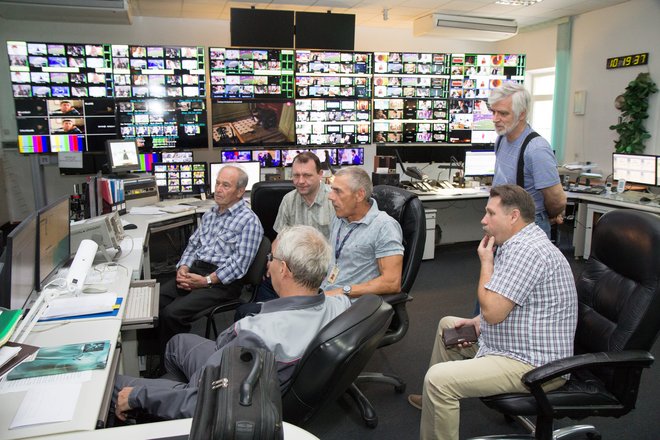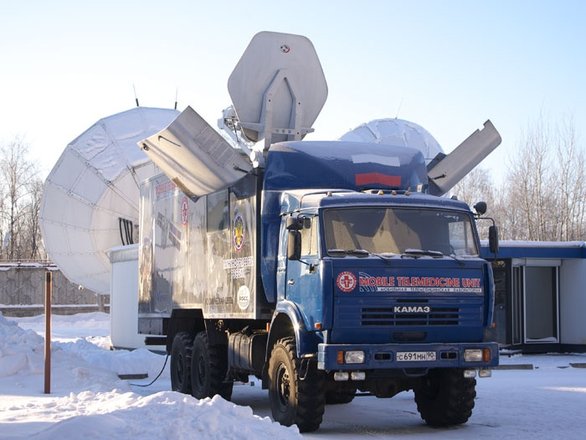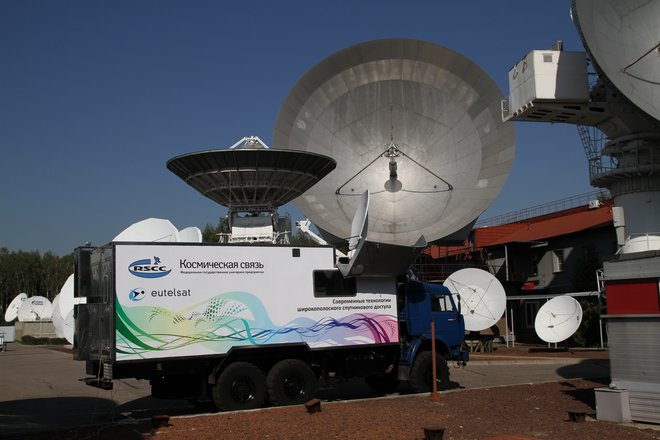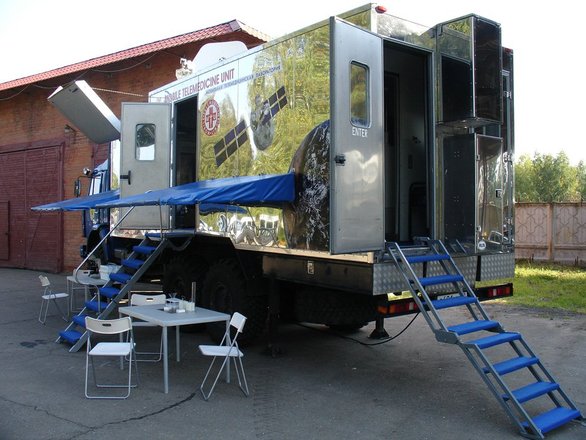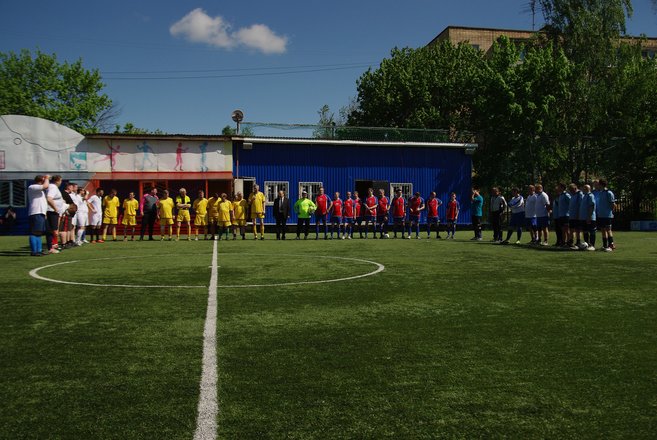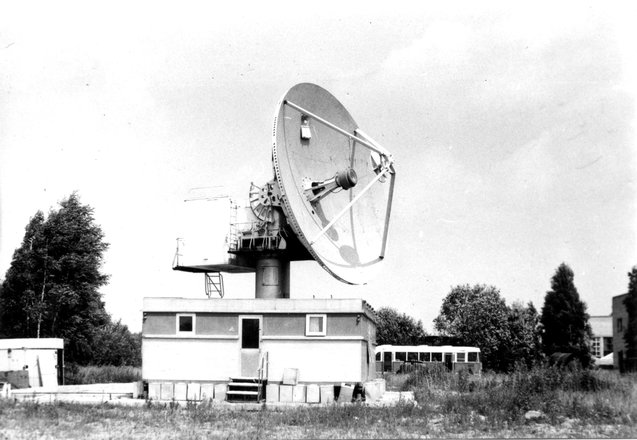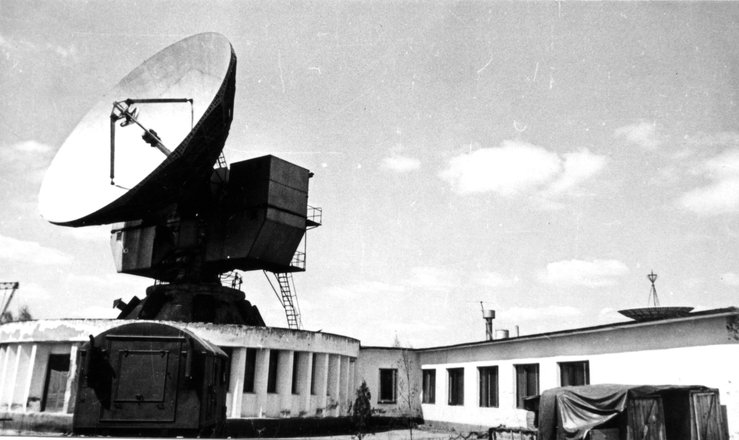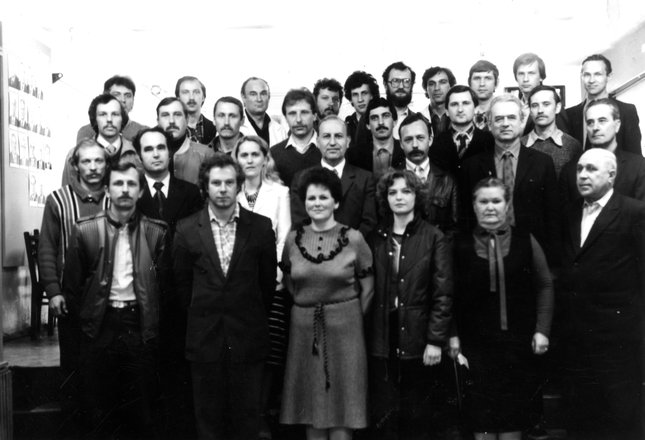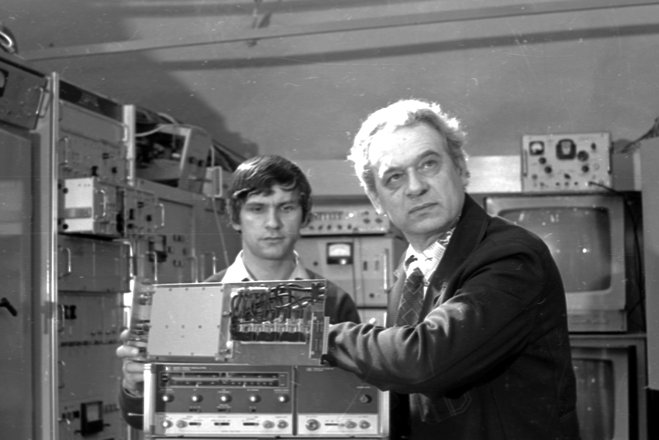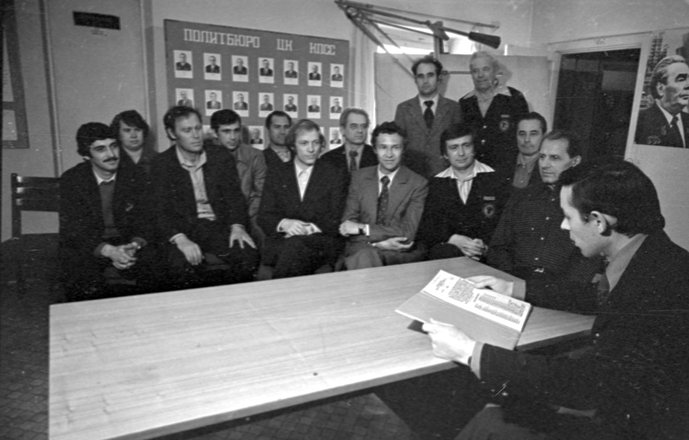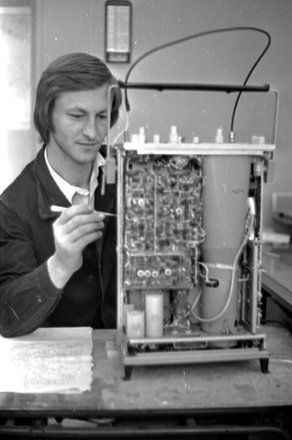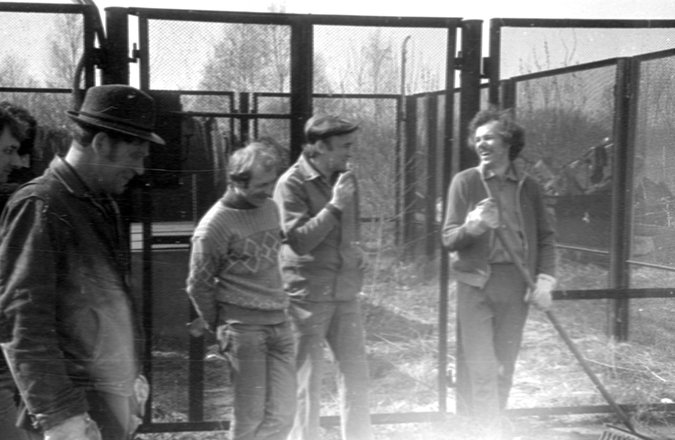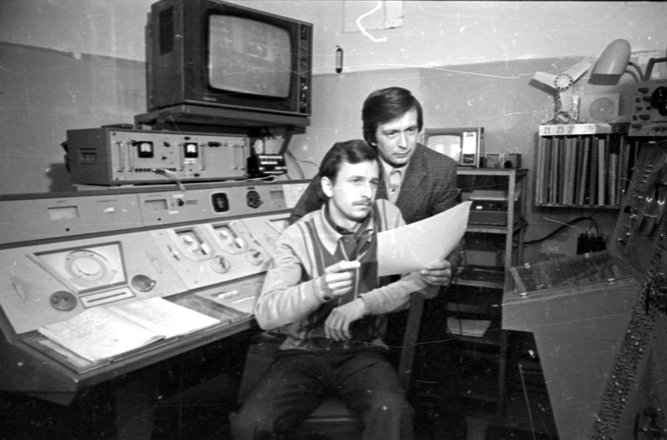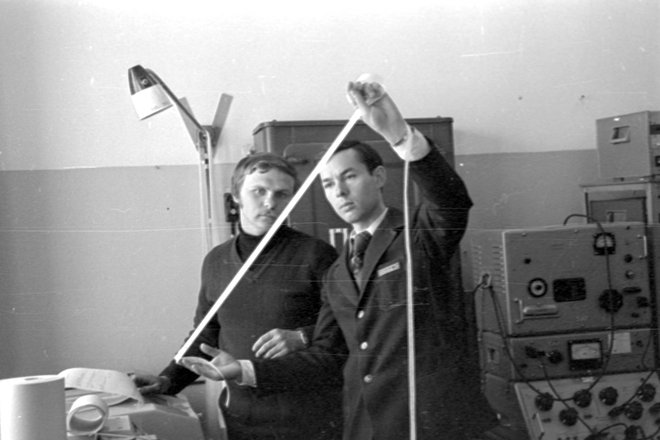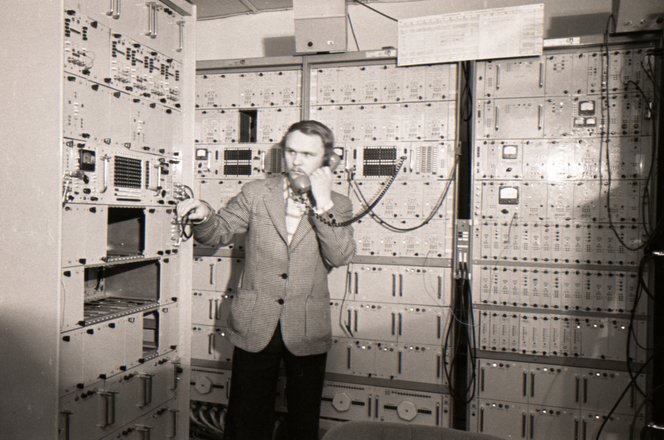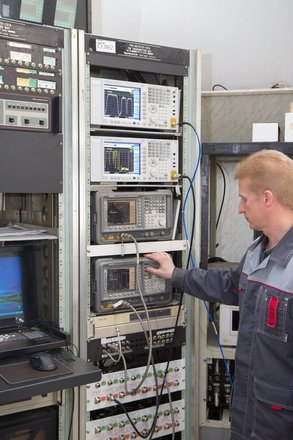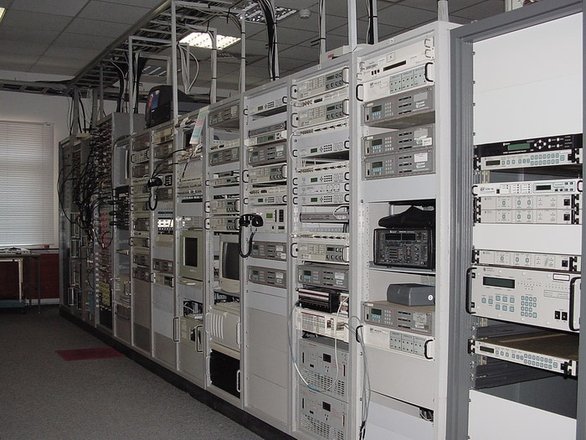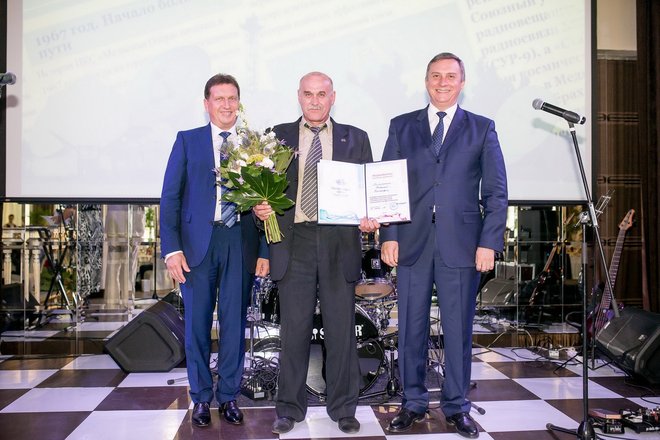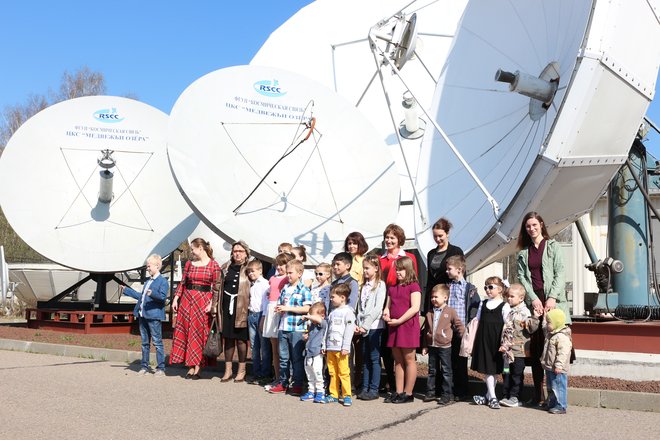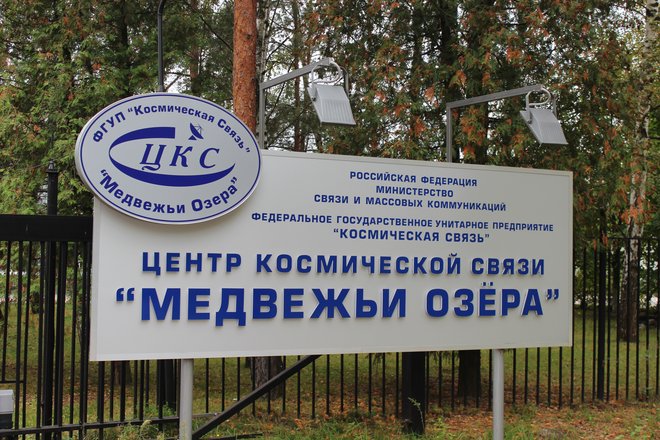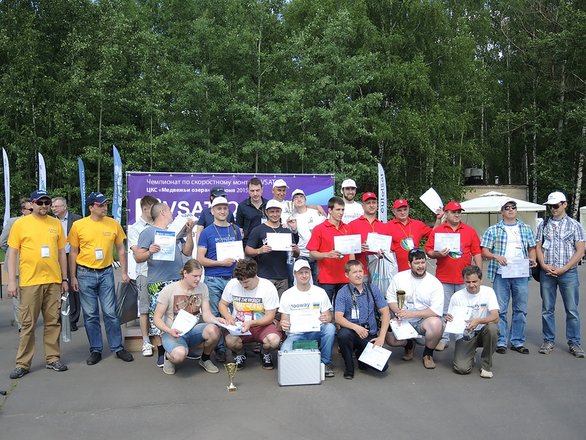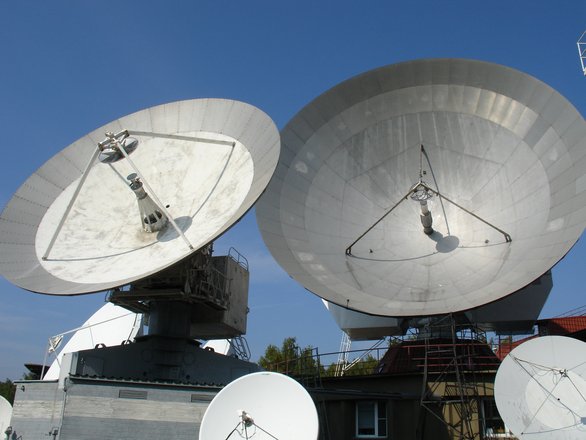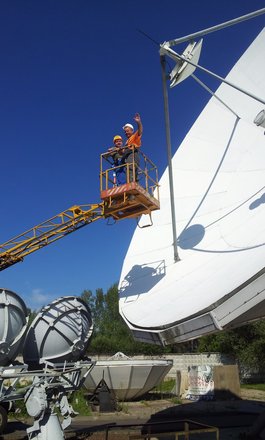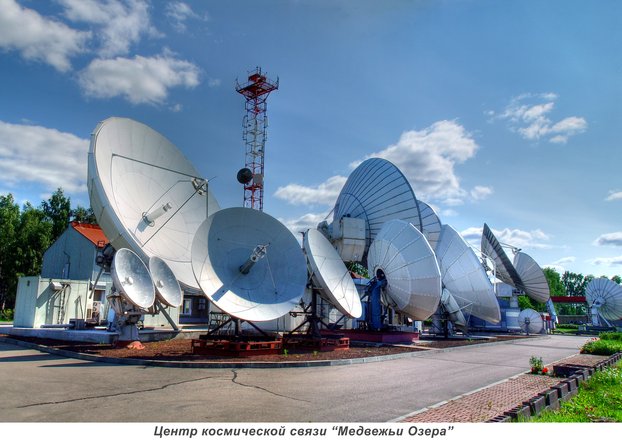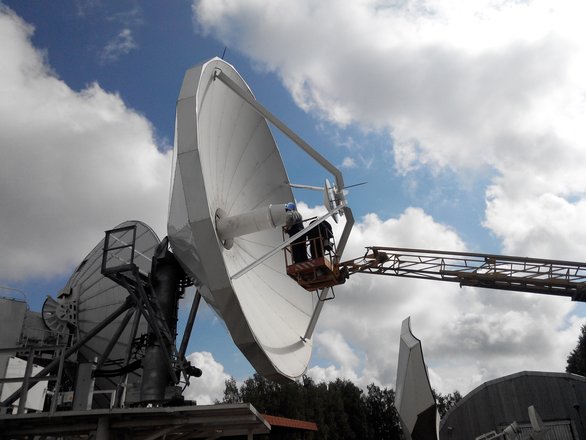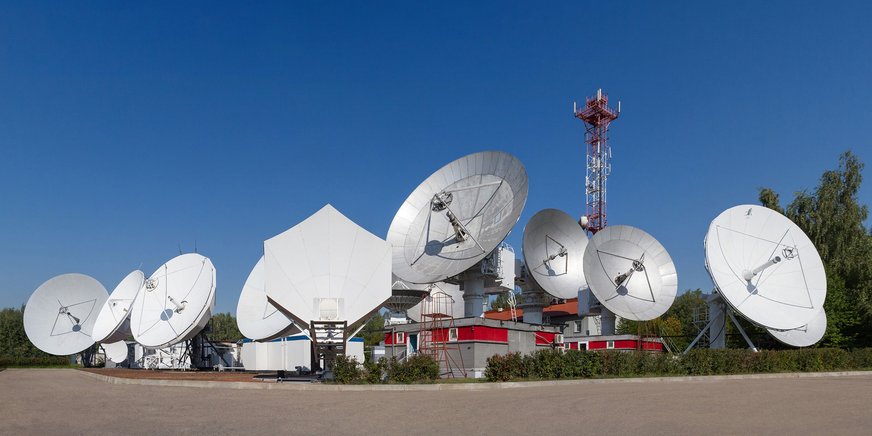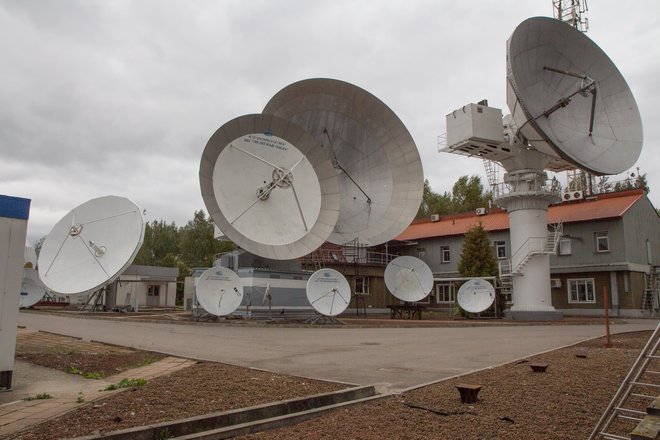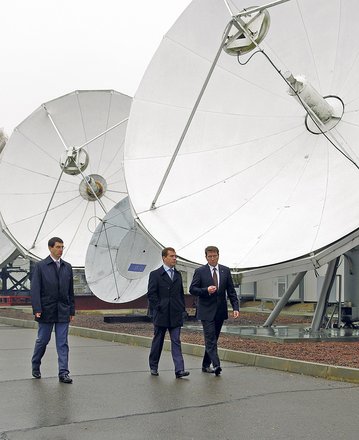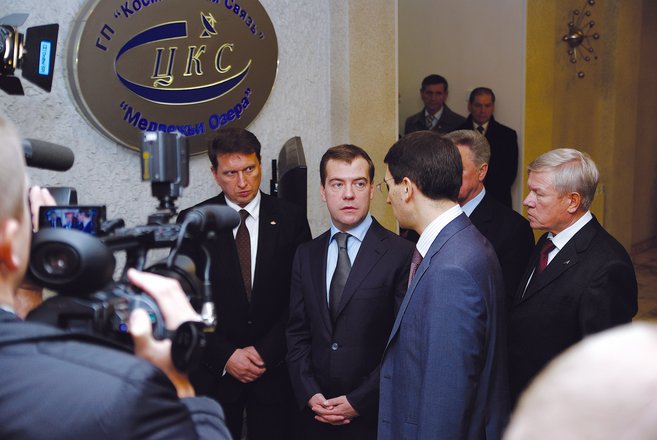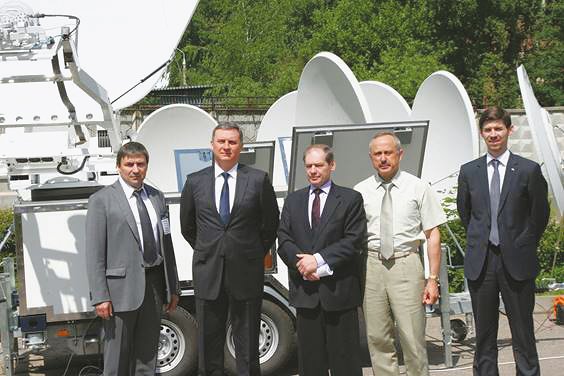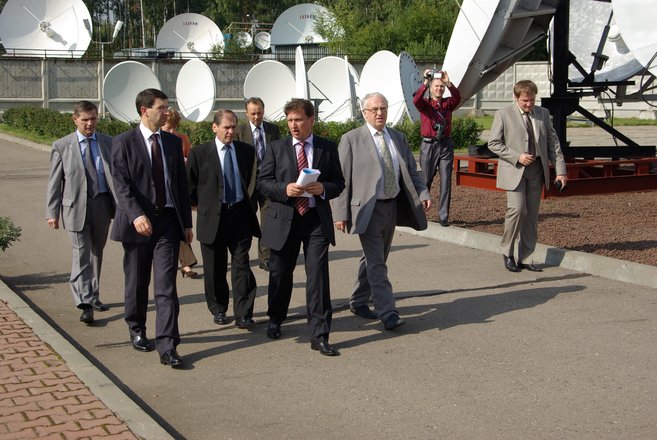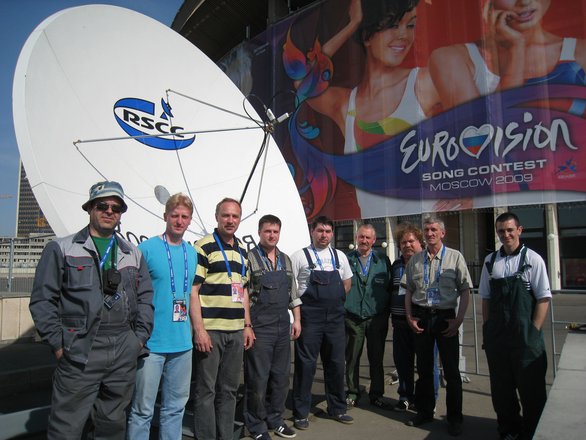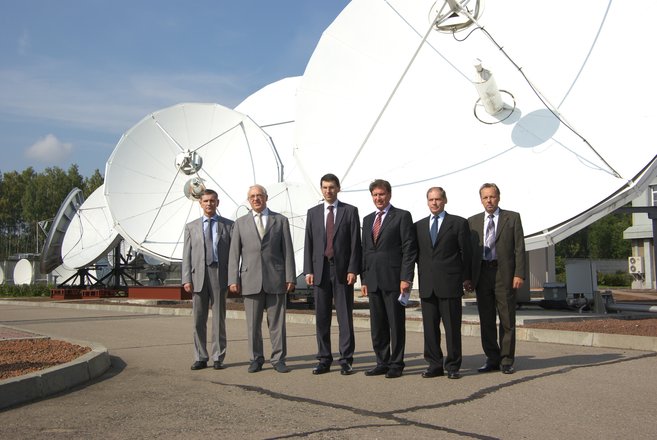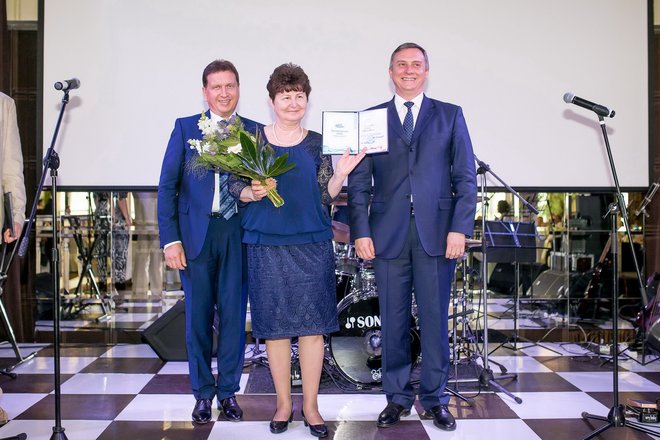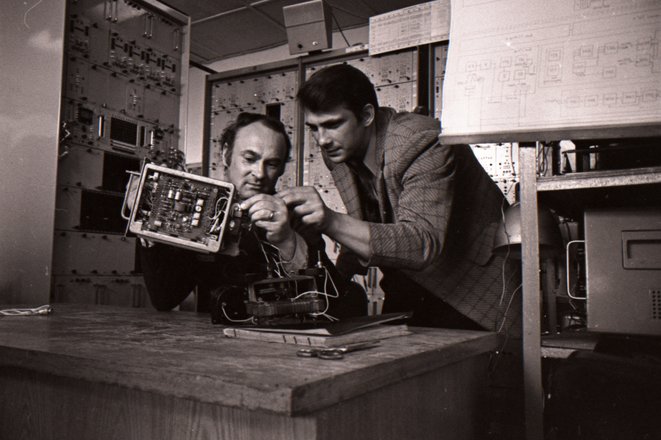Satellite Communications Center Bear Lakes turns 25
In 1967 in Medvezhyi Ozera (“Bear Lakes”), district near Moscow used for field tests and practice, the first “Orbita” (“Orbit”) transceiver station was built. Twenty eight years later, in 1995, the infrastructure facility updated its status and became a branch of the Russian Satellite Communications Company (RSCC) called Satellite Communications Center (SCC) Bear Lakes. At present, this is one of the largest teleports in Russia which provides various broadcast satellite and digital services making a significant contribution to the development of different economic sectors.
The SCC Bear Lakes ground infrastructure includes sixteen receiving and transmitting satellite communications Earth Stations with antennas from 4 to 16 meters. The station advanced equipment enables the communications channels to be established across a wide range of frequency bands via telecommunications satellites located at the positions from 14º West to 103º East. The center also has two separate fiber optic communications lines with a bandwidth of 12.5 Gb/s. They work in backup mode and, thus, secure a reliable broadband connection between Moscow and the SCC which makes it possible for the SCC to connect to any signal source within Moscow and the Moscow region. There is one more fiber optic communications line used between the SCC Bear Lakes and Shcholkovo (a city near Moscow) due to which the communication with the main objects of the city and its Administration is established.
High-skilled staff, advanced equipment, strong contacts and close co-operation with equipment manufacturers along with extensive experience in maintaining satellite communications channels allow the SCC Bear Lakes to successfully cooperate with the leading Russian and foreign companies in the TV and telecommunications service field as well as to provide high quality and reliable state TV&Radio broadcasting in 11 time zones and communications services both within the Russian Federation and abroad.
Historical background of the SCC Bear Lakes:
The SCC Bear Lakes history begins in 1967 with the construction of the first “Orbita” transceiver station within the perimeter used by the Moscow Power Engineering Institute for field tests and practice. In November 4, 1967, the station starts regular transmission of the Central Television program with satellite Molniya-1 to twenty receiving Orbita stations located in the farthest Russian cities and in the capitals of the constituent republics. This day is considered to be a birthday of Satellite Communications Station in Medvezhiy Ozera (“Bear Lakes”) as well as a foundation day of the Russian satellite operator “The Russian Satellite Communication Company” which now unites several Satellite Communication Centers including the SCC Bear Lakes.
The Orbita System, in which the Satellite Communications Station Bear Lakes plays a key role, was the world’s first circular TV and distributive satellite-supported system that used satellite communication in the most effective way.
1970s.
In 1970s, Satellite Communications Station in Bear Lakes becomes a part of a “Satellite Communications Center”, the organization focused on the development of satellite communications and broadcasting technologies necessary for improving national economy.
During this decade the Station starts regular broadcasting to the receiving stations of the “Orbita” network in Siberia, Central Asia and Far East. Also, it takes part in the development of the International Organization of Space Communications “Intersputnik”. The Satellite Communications Center staff, in collaboration with the specialists from the Ministry of Communications, takes part in constructing and maintaining satellite communications stations abroad.
In 1974, with the equipment from “Orbita-1” and communications satellites “Intelsat” and “Molniya”, a Moscow-Washington Hotline Link is established for the first time via satellite that was successfully operated for several years.
The specialists from the Communications Satellite Station in Bear Lake part in maintaining “Mars” portable ground stations which are used to transmit television broadcast of Soviet politicians visiting allied countries (India, Cuba), show Baikonur Cosmodrome operations, and arrange a teleconference space bridge between Mission Control Center (MCC) and Mir space station.
In 1979 the “Space Communications Center” organization becomes Union Hub No. 9 for Radio Broadcasting and Radio Communications, and the Satellite Communications Station in Bear Lakes turns into “Orbita–1” Communications Station.
1980s
“Orbita-1” Communications Station is modernized to participate in broadcasting the 1980 Summer Olympic Games to Australia, Japan, and Middle East. Thus, the station becomes a large teleport that can create a communication channel with stations located all over the world.
1990s and contemporary history.
In 1995, “Orbita-1” Communications Station becomes a branch of RSCC and gets its current name – The Satellite Communications Center (SCC) Bear Lakes.
Since then the station has changed beyond all recognition. From 1996 to 1999 the work was put in to dewater and improve its territory.
Also, 8 new satellite communications Earth Stations were installed in the SCC Bear Lakes area to operate with modern satellites in a different range of frequency bands. For maintenance of antenna alignment systems and transmission-reception equipment the computer network was implemented.
In 1996, the SCC Bear Lakes was one of the first to use fiber optic communications line to connect to the RSCC Program Generation Center at Shabolovka. As a result, this upgrade let the Center stop using relay communications channels for sending signals, thus meeting the requirement of leading Russian television companies to provide high-quality and reliable digital broadcasting.
In 1997, the SCC Bear Lakes was equipped with two high-voltage feeders, a substation transformer and three uninterruptible power supplies (UPS) which let the Center receive the first category of power supply reliability. In 2013, to increase power supply reliability, a diesel generator set “Wilson” (640 kW) was bought in addition to the diesel power station BAM-500.
In 1998, the SCC successfully organized satellite television transmissions from the Olympic Games in Australia for the Channel One, VGTRK, and NTV sports editorials.
During 1990s the Center also tried new types of foreign equipment to find which one could be used to provide digital broadcasting with satellite communications channel. As part of this project, in 1998, technologies of such companies as CLI, Wegener, Tandberg, etc. were tested to see which one was the best for digital TV transmission via the transponders of the Soviet Gorizont-series satellites.
From 1998 until now, the specialists from the SCC Bear Lakes have been working hard at the creation of the satellite communications network “Jupiter” which main task would be a satellite channel arrangement between network units for multiservice exchange that will be extremely useful for the communication of the Russian officials discussing public administration issues.
In 2001, the SCC Bear Lakes for the first time in Russia provided digital satellite broadcasting of such TV companies as NTV, TNT, and REN-TV.
As part of a government program according to which federal TV channels were supposed to be broadcast digitally, in November 2004, the SCC Bear Lakes started digital transmission of those channels to the European part of Russia, Ural, and Western Siberia via the Russian Express-AM1 satellite.
In 2003, the RSCC and the specialists from the SCC Bear Lakes developed and produced mobile telemedicine laboratory MTL-5852 on the base of KAMAZ-43118K. This project was supposed to implement satellite connections in multilevel telemedicine systems to fight infectious diseases.
From 2003 to 2015, mobile laboratory MTL-5852 was frequently demonstrated at both Russian and international forums and exhibitions including the ones held in Geneva, Hanover, Chisinau, and Moscow.
In 2005-2006, the SCC developed, tested and implemented their own Conditional Access System “Roskript”, serving to restrict an unauthorized access to the TV content distributed via satellite channels. In the same year, TV programs started to be broadcast in MPEG-4 format in test mode.
In 2007, the SCC Bear Lakes built a Backup Compression Center (BCC) that would provide broadcasting of Federal TV programs in case of emergency in the Main Compression Center at Shabolovka. The BCC functioned properly until the analog broadcast format was stopped in 2019.
In May, 2009, the SCC provided the broadcast of an international song competition “Eurovision-2009” from Moscow to European Countries in HD format.
In October, 2009, the Russian president D.A. Medvedev paid a working visit to the SCC Bear Lakes.
Since 2011 the SCC Bear Lakes has been taking part in implementing the decision of the Government Commission on TV and radio broadcasting to spread digital broadcast of multiplexes across Russia. As part of this project, the SCC modernized its channel forming equipment, redesigned its multiscreen monitoring software as well as built and implemented new Satellite Earth Station.
In 2014, the second fiber optic communications line was put into use which secured a much more reliable connection between Shabolovka Technical Center and the SCC Bear Lakes.
In 2014, the SCC Bear Lakes took part in broadcasting the Olympic Games in Sochi. During the broadcast not a single problem occurred.
In 2015, the SCC Bear Lakes equipment underwent a technical audit, and from 2015 to 2020 the Center has been constantly modernized, improved and developed for our customers to have the best services on the market. They are changing the old transmitters for the modern ones (solid-state), laying new fiber optic communications lines to reach other Earth stations, and developing the computer programs designed for the better control of technological processes.
In order to increase control efficiency, and, accordingly, provide only high-quality services in 2017-2018 the following systems were developed and implemented: power control system, TV and radio control systems as well as the remote control of sound and radio broadcasting.
In 2017, to prevent disinformation about Russia, the international information agency “Russia Today” was launched. The SCC Bear Lakes plays an important role in its broadcast.
2018 was especially fruitful for the SCC Bear Lakes. The Center took part in providing a high-quality smooth broadcast of the presidential elections in Russia, FIFA World Cup, and other special events. All the provided services had not a single problem.
Also, the Center hosted the all-Russian high-speed equipment championship VSAT.
At present, the SCC Bear Lakes actively works at expanding its tech capabilities to provide high-demand communications services for both Russian and foreign clients. The Center is also very focused on the reliability increase and on general improvement of its communications channels. They constantly improve their monitoring systems, along with power control systems.
Nowadays, the SCC Bear Lakes, a branch of the RSCC, is one of the largest Russian teleports with excellent infrastructure, advanced equipment, and high-skilled specialists. This is the Center that provides Russian and foreign customers with a wide range of services and takes part in important government decisions.
